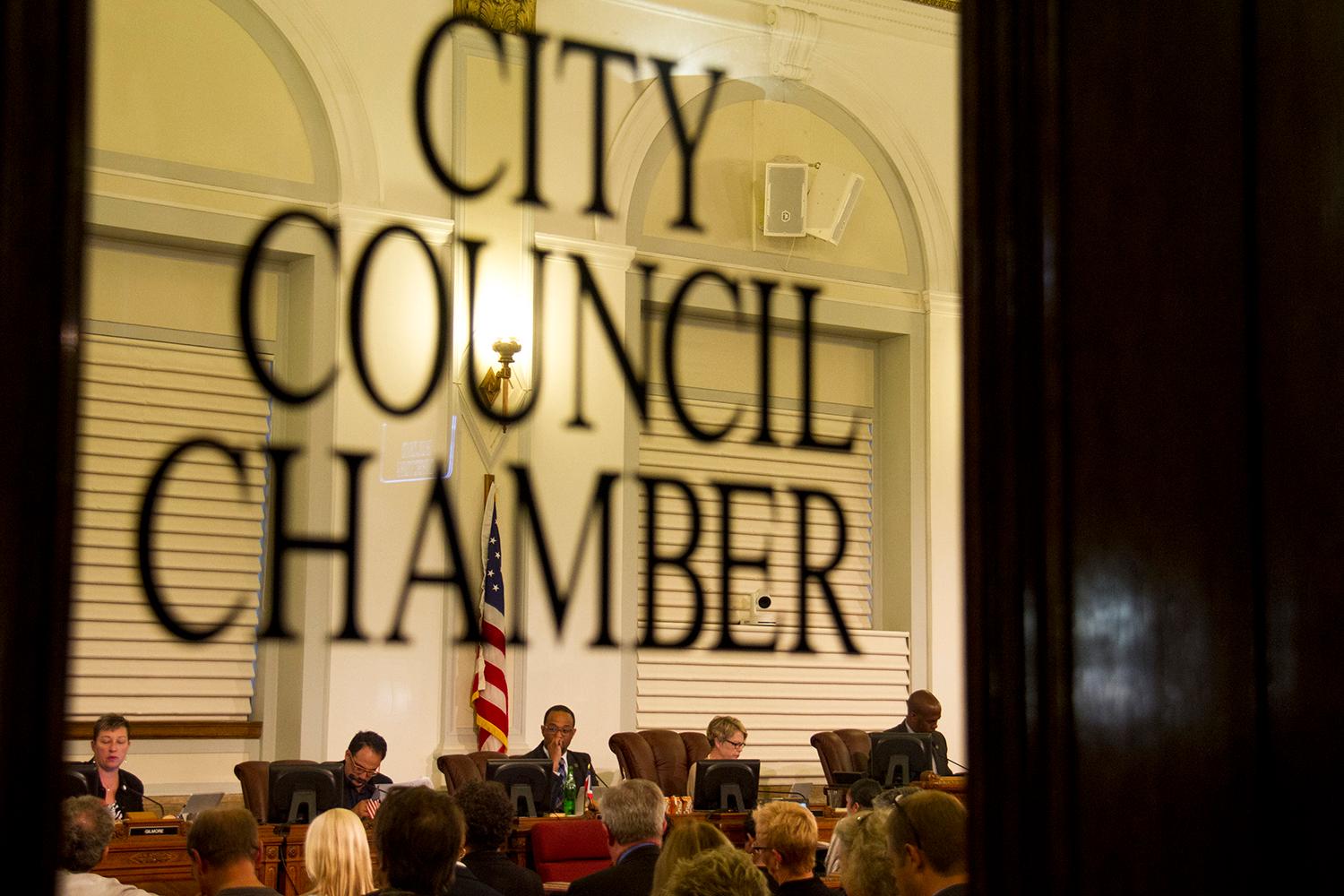
Elected officials in Denver have to file documents every year that lay out their financial interests -- where they earn their money, what property they own, to whom they owe money -- and disclose any gifts they've received from people outside their family.
But it's not so easy for the public to see those documents.
"These are things that are on paper and in a file cabinet," said Peg Perl, senior counsel for Colorado Ethics Watch. "Someone has to go and ask for them during business hours."
Two ordinances in front of Denver City Council on Monday would, for the first time, make financial disclosures from city officials -- and the lobbyists who try to woo them -- available online for the public.
The ordinances, which include other tweaks to the reporting requirements, are part of a larger update to the city's ethics code.
A third ordinance sponsored by Councilman Kevin Flynn is still working its way through the committee process. That bill would make a number of changes to what public officials could accept and would make changes to how Denver Board of Ethics members are chosen. The Board of Ethics can hear complaints, subpoena documents, offer advisory opinions and provide waivers for actions that might violate the letter of the law but don't pose real ethical concerns.
The seeds for these changes were planted in the 2015 municipal election.
Advocacy groups and community members were concerned about the influence of campaign contributions from developers and the perception that developers have a close relationship with city officials. They were considering a ballot measure to push through changes to financial disclosure and ethics rules but decided the timing wasn't right. Perl said the ordinances being taken up by City Council represent an incremental approach that is moving in the right direction and that Ethics Watch supports.
Even when nothing illegal is going on, requiring that gifts be disclosed helps the public understand the relationships between public officials and private parties, Perl said.
"The public does have an interest in knowing the back and forth and how cozy officials are with representatives of industry or other groups or, on the other hand, representatives of neighborhood groups who are seeking certain action," Perl said.
"Gift disclosure is not about finding bribes," she added. "No one is accusing anyone of anything improper, but this is the transparency we want."
In addition to making documents more accessible by posting them online, the ordinance would move the filing date for financial disclosures to Jan. 15. Right now, it's Aug. 1, so information from the preceding year is already eight months old by the time it's reported.
Public officials would also have to file gift disclosure forms four times a year that would show who gave them gifts, what they got and how much that item was worth. Gifts can include things like meals and tickets to events, but campaign contributions don't count, as those are reported elsewhere. Officials also don't have to disclose gifts from immediate family members.
"There is no public interest in reporting what you got for Christmas," Perl said.
These requirements apply to the mayor, the auditor, members of City Council and key department heads like the manager of public works, the manager of parks and recreation, the manager of finance, the manager of environmental health, the manager of general services, the manager of safety, the city attorney, the manager of human services, the clerk and recorder, the manager of aviation, the manager of community planning and development, and the mayor's chief of staff, as well as some mayoral appointees.
The second ordinance before City Council similarly standardizes the reporting for lobbyists so they all renew their registration on Jan. 15, regardless of when they started lobbying.
It also requires that they file bi-monthly reports that include an itemized list of "all gifts, entertainment, and direct or indirect expenditures to, on behalf of, or benefitting the covered official for lobbying purposes, including but not limited to: monies, tickets, gratuities, transfers, loans, advances, deposits, promises, expressed or implied agreements, or any tangible or intangible thing of value of any amount."
Those two ordinances don't change what is and isn't okay for public officials to accept. They deal primarily with disclosure.
The third ordinance would make larger changes to what types of gifts are allowed.
The finance and governance committee will pick that one up on Tuesday.
Right now, officials can accept up to four free meals or tickets to events from any individual donor each year. But if those tickets are Super Bowl tickets, for example, the value of a single event might be pretty high.
Flynn's proposal would put a $300 annual cap on tickets and admission to events in cases where the donor is someone over whom the official could "take direct official action," like someone seeking a contract with the city.
City officials could still accept up to to four free meals a year from donors, and events like "working lunches" where food is provided to everyone in attendance wouldn't count toward that total.
The proposal would also explicitly prohibit public officials from accepting gifts of cash or gift cards, even in small amounts, and it would bar council members and other public officials from asking people with business before the city to donate to a particular charity.
Correction: This story has been changed to reflect that Denver already has a Board of Ethics. The third ordinance under consideration doesn't create that board but would make some changes to it.












